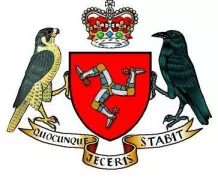Multi-million pound businesses in the Isle of Man – including branches of leading high street and private banks – could in future benefit from a proposed new tax cap on profits from their annual income.
The vast majority of business is already subject to a standard zero rate of corporate tax. Banks and property companies have had their income tax cut to just 10 per cent on normal trading profit whilst all other income, including liability on reserves, is now zero-rated. However, if the tax cap on corporate profits is subsequently confirmed, the tax on the banks’ normal trading profits would be capped at a fixed annual amount.
Favourable industry response
The Treasury has concluded a consultation with the relevant sectors of the finance industry, which considered the idea of a corporate cap to be extremely favourable and one that would be particularly attractive to large banking concerns. If the proposed corporate tax cap were implemented at say £6 million, a company would not pay any additional tax on profits in excess of this amount.
The figure of £6 million has been suggested as the level at which the cap should be set and is just above that of the highest tax currently being paid by any company at present operating on the Island. In effect, such a move would provide an added incentive for banking groups to consider the Island as a base of operations where they could generate added profits by capping their entire group corporate tax liability.
The Treasury described this potential cap as a further demonstration of ‘the Isle of Man’s stated intention to move to an overall zero rate of corporate tax when future revenues permit.’ It is expected that its introduction will be reviewed in 2007.
Phased zero policy
The current standard zero rate of business tax, which now applies to most Isle of Man companies, was phased in over a five-year period. This course worked to plan with the new regime delivered on time and proving extremely successful in attracting further inward investment.
A tax cap of £100,000 on personal income was introduced in the Budget earlier this year. This was designed to encourage entrepreneurship by attracting the industry’s high fliers to make their homes here and bring their businesses along with them.
While this initiative is still in its roll-out stage – applying for the first time in the current 2006-07 year of tax assessment – the move has already generated significant international interest. Several prospective new residents in this high-earning income bracket are reported to be making concrete plans to move to the Island.
Next five-year plan
The latest tax cap proposal is regarded as just one part of the Island’s fiscal planning strategy for the next five years. Treasury Minister Allan Bell, who has steered the Government’s radical zero tax policy from the outset, has charged key officials, including the Income Tax Assessor, to formulate a fresh plan for the future with the object of building on the success of the zero tax strategy and maintaining the current momentum in the growth of the island’s economy.
The content of this article is intended to provide a general guide to the subject matter. Specialist advice should be sought about your specific circumstances.

